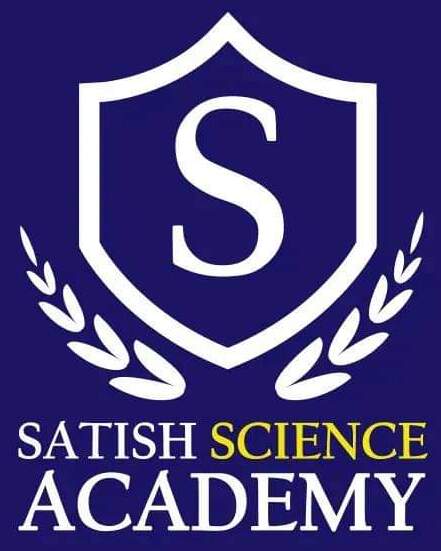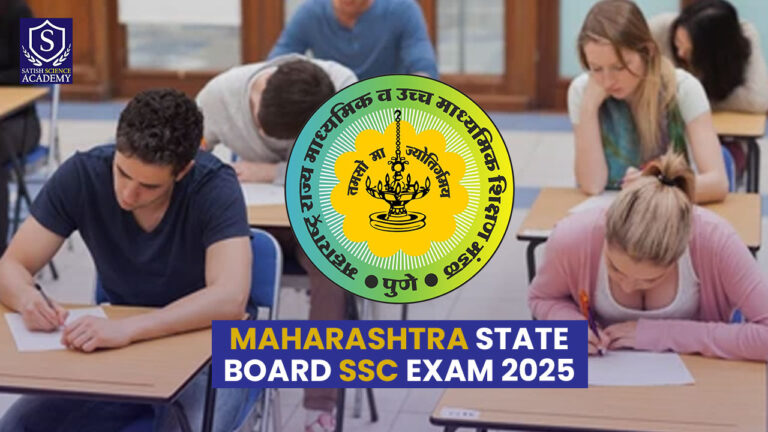Best Guide For NEET Physics 2025 : Syllabus, Chapters, PYQs & Resources
Overview of NEET Physics
Why NEET Physics is Crucial for Success
In the competitive world of NEET preparation, NEET Physics holds a pivotal role in shaping a student’s final rank. While Biology and Chemistry may seem more straightforward, Physics challenges students with numerical, logic-based problems, and real-world applications. A strong grip on NEET Physics not only improves your overall score but also reflects analytical ability — a trait essential for future medical professionals. Students who consistently practice and understand Physics concepts are more likely to crack NEET with top scores.
Difficulty Level and Scoring Strategy
Among the three subjects tested in NEET, NEET Physics is often rated as the most demanding. It requires a deep understanding of theories, formulas, and practical applications. The key to scoring high in NEET Physics lies in smart preparation. Focus first on high-weightage chapters, build conceptual clarity, and regularly solve previous year questions (PYQs). Using short formula revision sheets and time-bound mock tests can help in boosting speed and accuracy. With a disciplined study plan, even average students can master NEET Physics and aim for 140+ marks.

Paper Pattern and Marks Distribution
The section consists of 50 questions, out of which candidates are required to attempt only 45. These are divided into two parts:
-
Section A: 35 compulsory questions
-
Section B: Section B consists of 15 questions, out of which candidates can select and attempt any 10 based on their strengths and preparation.
Each correct answer is awarded 4 marks, while 1 mark is deducted for every wrong response. NEET Physics carries a total weightage of 180 marks in the exam. The questions are evenly picked from both Class 11 and Class 12 topics, making it important to focus on both years during preparation. Knowing which chapters contribute more questions can help you prioritize and maximize your score.
NEET Physics Syllabus 2024 vs 2025
NEET Physics Syllabus 2024 (Detailed Breakdown)
The NEET Physics syllabus 2024 strictly follows NCERT textbooks.
Class 11 Physics Chapters:
-
Units and Measurements
-
Motion in a Straight Line
-
Laws of Motion
-
Work, Energy, and Power
-
Rotational Motion
-
Gravitation
-
Properties of Bulk Matter
-
Thermodynamics
-
Kinetic Theory of Gases
-
Oscillations and Waves
Class 12 Physics Chapters:
-
Electrostatics
-
Current Electricity
-
Magnetism and Magnetic Effects
-
Electromagnetic Induction
-
Alternating Current
-
Electromagnetic Waves
-
Ray Optics and Wave Optics
-
Dual Nature of Matter and Radiation
-
Atoms and Nuclei
-
Electronic Devices
Knowing the exact NEET Physics syllabus 2024 helps you align your preparation strategy and avoid wasting time on irrelevant content.

NEET Physics Syllabus 2025 (Expected Changes)
The NEET Physics syllabus for 2025 is expected to largely mirror the 2024 structure but may reflect changes as per the New Education Policy (NEP) and NTA guidelines. While no official update has been released, experts anticipate minor adjustments — such as reduced focus on outdated experiments or realignment of concepts to streamline topics with current learning methodologies.
Key expectations for NEET Physics 2025:
-
Slight reduction in complex derivations
-
Real-world application-based questions
-
More emphasis on critical thinking
Staying updated with the official syllabus release for NEET Physics 2025 is crucial to avoid last-minute surprises during the preparation phase.
Total Chapters in NEET Physics (Class 11 + 12)
The NEET Physics syllabus comprises a total of 20 major chapters, split equally between Class 11 and Class 12.
-
10 Chapters from Class 11
-
10 Chapters from Class 12
Each chapter carries a different weight in the exam, so understanding the importance of each helps in prioritizing study time. While some chapters like Mechanics and Current Electricity are lengthy and high scoring, others like Electronic Devices or Communication Systems are shorter but easier to revise.

NEET Physics Deleted Syllabus for 2024-2025
In recent academic sessions, CBSE and NTA made selective changes to reduce the academic burden on students.
Likely excluded topics include:
-
Certain portions of Properties of Bulk Matter
-
Minor sections of Wave Optics
-
Some outdated experimental procedures
Candidates are advised to download the official NEET Physics syllabus PDF or refer to the NTA bulletin to confirm these updates for both 2024 and 2025. Avoiding deleted topics can save crucial revision time.
NEET Physics Chapter-wise Weightage
Understanding the chapter-wise weightage in NEET Physics is a smart way to study strategically. Instead of spending equal time on every topic, top scorers prioritize chapters that are more likely to appear in the exam. This targeted approach saves time and boosts accuracy—two essential elements for NEET success.
Chapter-wise Weightage for NEET Physics 2024
Based on the analysis of previous NEET papers, here’s an estimated chapter-wise weightage distribution for NEET Physics 2024. While the actual number of questions may vary slightly, this breakdown provides a realistic roadmap for students to plan their preparation:
Class 11 Physics Chapter Weightage:
| Chapter Name | Estimated Questions |
|---|---|
| Laws of Motion | 3–4 |
| Work, Energy, and Power | 2–3 |
| Rotational Motion | 2–3 |
| Thermodynamics | 2 |
| Kinematics | 1–2 |
| Gravitation | 1–2 |
| Oscillations and Waves | 2 |
| Physical World and Measurement | 1 |
Class 12 Physics Chapter Weightage:
| Chapter Name | Estimated Questions |
|---|---|
| Current Electricity | 3–4 |
| Electrostatics | 2–3 |
| Magnetic Effects and Magnetism | 2–3 |
| Ray and Wave Optics | 3 |
| Dual Nature of Matter and Radiation | 2 |
| Semiconductors and Electronics | 2 |
| Atoms and Nuclei | 1–2 |
✅ Note: These are based on trend analysis and subject expert reviews. NTA does not publish an official weightage chart, so this data is purely for strategic learning.
Most Important Chapters for NEET Physics
If you’re short on time or want to focus on high-yield areas first, prioritize the following high-weightage NEET Physics chapters:
-
Current Electricity – frequently asked due to its numerical strength.
-
Ray Optics – conceptual and application-based.
-
Semiconductors – easy and often comes with direct theory-based questions.
-
Rotational Motion – a conceptual chapter from Class 11 that links with other topics.
-
Thermodynamics – overlaps with chemistry, so you benefit in both subjects.
-
Modern Physics (Atoms & Nuclei) – compact yet highly scoring.
-
Electrostatics & Magnetism – fundamental for many NEET Physics problems.
Focusing on these topics not only boosts your score but also builds confidence to tackle tricky questions under exam pressure.

Predicted Chapter-wise Trends for NEET Physics 2025
As NEET evolves year by year, the 2025 paper is expected to lean more toward conceptual understanding and real-life application. Based on recent updates in CBSE and NCERT, here are possible shifts:
-
Increased emphasis on Modern Physics and Semiconductors due to digital applications.
-
Balanced weightage between numerical and theoretical questions.
-
Possible integration of cross-topic questions to test deeper understanding.
-
Some low-weightage chapters might be trimmed or deleted (refer to official syllabus).
Staying updated with the latest syllabus, solving recent mock papers, and reviewing PYQs will help you stay ahead of any changes in NEET Physics 2025.
NEET Physics Questions and PYQs (Previous Year Questions)
Practicing NEET Physics questions, especially from previous year papers, is one of the most reliable ways to improve accuracy and confidence before the exam. These questions give students a realistic view of the types of problems that appear in the actual NEET Physics section and help identify areas that need more attention.
Importance of Solving NEET Physics PYQs
Working through NEET Physics PYQs is more than just practice—it’s a smart preparation strategy. Here’s why solving these questions is essential:
-
???? Recognize Repeated Concepts: Many questions are conceptually similar from year to year. Identifying frequently tested topics allows you to focus your efforts wisely.
-
???? Understand NEET Physics Patterns: PYQs provide insight into how topics are framed in the exam—whether conceptual, numerical, or tricky.
-
⏳ Improve Time Management: With limited time during the actual test, regular PYQ practice trains you to solve problems quickly and accurately.
-
???? Minimize Exam Surprises: Familiarity with question styles reduces anxiety and builds exam-day confidence.
By integrating PYQs into your daily study schedule, you become more exam-ready and build a strong grasp over the NEET Physics syllabus.
Reliable Sources for NEET Physics PYQs
To get the most out of previous year NEET Physics questions, use authentic and well-organized sources. Here are the best options:
-
NTA Official NEET Question Papers (from 2019 onwards)
-
NCERT-based NEET Physics guides with chapter-wise PYQs
-
Books like MTG’s 33 Years or Arihant NEET Physics Chapter-wise PYQ
-
Digital PDFs and online portals that offer free or premium PYQ compilations
-
Coaching material from reputed institutes like Allen, Aakash, or Satish Science Academy
Make it a point to solve at least 5–10 PYQs per chapter while studying a topic, and gradually increase your practice frequency.
How to Approach NEET Physics Questions Effectively
Solving NEET Physics questions is not just about knowing formulas. It’s about understanding what’s being asked, applying the right logic, and solving within time constraints. Follow this structured approach:
-
Read the Problem Carefully
Understand every term—especially conditions like “ideal,” “frictionless,” or “constant.” -
Identify the Chapter and Concept
Classify the question under a specific topic like kinematics, electrostatics, or modern physics. -
Apply the Correct Formula
Use your conceptual clarity to determine which formula or method is best suited for the problem. -
Eliminate Wrong Options
If it’s an MCQ and you’re unsure, use logic and elimination to rule out incorrect choices. -
Check Units and Dimensions
In NEET Physics, dimensional analysis can often point you to the correct answer.
Sample NEET Physics Questions (Concept-Based)
NEET Physics: FAQ Guide for Aspiring Students (Updated 2025)
How Should I Start Studying Physics for NEET?
Begin with the basics. Focus on understanding core concepts from NCERT textbooks before jumping into problem-solving. Break each topic into manageable sections, create visual notes or flashcards, and gradually introduce numerical practice. Regular self-assessment through quizzes and mock tests will help you gain confidence and improve time management.
Where Can I Find NEET Physics Questions with Solutions in PDF Format?
You can access chapter-wise NEET Physics PDFs from trusted academic websites, coaching platforms, or even official previous year NEET paper collections. These documents usually include topic-based MCQs, NEET past questions, and step-by-step solutions, helping you revise and test your preparation effectively.
Who is recognized as the top Physics educator for NEET aspirants in India?
Top NEET educators in India include names like Alakh Pandey (Physics Wallah), NV Sir (Motion Kota), and Ashish Arora (Physics Galaxy). However, the “best” teacher depends on how well you connect with their teaching style. At Satish Science Academy, expert mentors simplify Physics for all learning levels.
What Are NEET Physics Questions Like?
They include calculations, conceptual MCQs, and graph-based problems from all major topics like Kinematics, Thermodynamics, and Modern Physics. Practicing these regularly will prepare you to tackle similar patterns in the real exam.
What Is the Best Approach to Learning Physics for NEET Starting from the Fundamentals?
Start with NCERT chapters, and try to truly understand the meaning behind each concept. Avoid rote memorization. Use visual learning methods like videos and diagrams, and move to standard NEET reference books only after grasping the fundamentals. Regular practice and coaching guidance, such as that offered at Satish Science Academy, can help accelerate your growth from a zero level.
How Many Physics Questions Are Asked in NEET?
The NEET Physics section has 50 questions, out of which 45 must be attempted:
-
Section A: 35 questions (compulsory)
-
Section B consists of 15 questions, out of which only 10 need to be answered.
Each correct answer gives 4 marks, while an incorrect one results in a 1-mark deduction.
What Types of Physics Questions Are Included in NEET?
NEET Physics includes conceptual, numerical, and formula-based MCQs from both Class 11 and 12 syllabi. Chapters like Current Electricity, Laws of Motion, and Optics often carry significant weight. Practice mixed-difficulty questions daily and solve previous years’ papers for better familiarity.
How Can I Score 180 Out of 180 in NEET Physics?
To get a perfect score:
-
Master all fundamental concepts from NCERT
-
Memorize important formulas through repeated revision
-
Solve 100+ MCQs daily from high-yield topics
-
Take full-length mock exams regularly
-
Analyze mistakes and track your progress weekly
Joining a structured coaching environment like Satish Science Academy also increases your chances with expert guidance and mock drills.
Where to Find NEET Thermodynamics Questions in PDF Format?
Thermodynamics-specific question PDFs often include conceptual problems, derivations, and numerical exercises from previous NEET papers. You can find these resources from academic portals, coaching platforms, or compile your own based on standard books and past question papers.
What Is the Best Way to Revise NEET Physics?
Effective revision combines:
-
Quick reading of formula sheets and summary notes
-
Revisiting previously incorrect questions
-
Using mock test reviews to spot weak chapters
-
Daily short quizzes for instant feedback
Which Books Are Recommended for NEET Physics?
Here are the best books to rely on:
-
NCERT Physics – Your foundation
-
DC Pandey’s Objective Physics – For chapter-wise MCQ practice
-
HC Verma – For theory and concept-building
Pick the combination that fits your current level and preparation goals.
How Can I Improve in Physics for NEET?
To improve:
-
Focus on concept clarity, not memorization
-
Review mistakes after every mock test
-
Build your speed with timed problem-solving
-
Work with mentors who provide personal feedback
Satish Science Academy specializes in custom improvement plans tailored to each student.
How Many Chapters Are Covered in NEET Physics?
NEET Physics includes 29 chapters:
-
Class 11: 14 chapters (e.g., Laws of Motion, Work & Energy)
-
Class 12: 15 chapters (e.g., Electrostatics, Magnetism, and Optics)
Each chapter is important, so it’s recommended not to skip any, even if perceived as low weight.
What’s the Best Way to Prepare Physics for NEET?
Use a structured approach:
-
Start with NCERT concepts
-
Practice MCQs daily
-
Revise formulas weekly
-
Use mock exams to test accuracy and speed
Coaching centers like Satish Science Academy provide curated plans, regular tests, and personalized mentorship to ensure steady growth.
Is Physics Wallah a Good Option for NEET Preparation?
It works best for self-motivated students. However, for students who benefit from real-time interaction and regular feedback, classroom-based coaching like Satish Science Academy offers more personalized learning.
How Many Total Chapters Are There in NEET Physics?
The complete syllabus includes a total of 29 chapters spanning both Class 11 and Class 12. All chapters are included in NEET, and students are advised to cover each one to avoid missing out on even low-weightage questions.
How Do I Study Physics Effectively for NEET?
An effective strategy includes:
-
Building clear concepts
-
Revising formulas regularly
-
Practicing a variety of questions
-
Taking full mock exams every week
Consistency is key. Guidance from institutes like Satish Science Academy ensures you stay on the right path throughout your journey.
How Should I Approach NEET Physics Chapter-Wise?
Start with Mechanics and move toward topics like Thermodynamics and Modern Physics. Use a topic-wise question bank and set weekly goals. Chapter-wise focus helps in efficient time allocation and targeted improvement.







